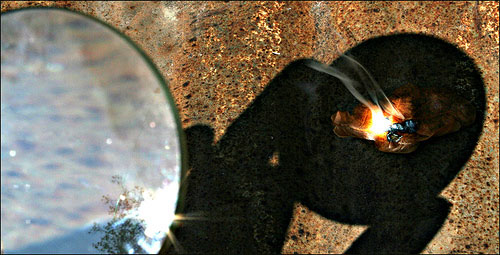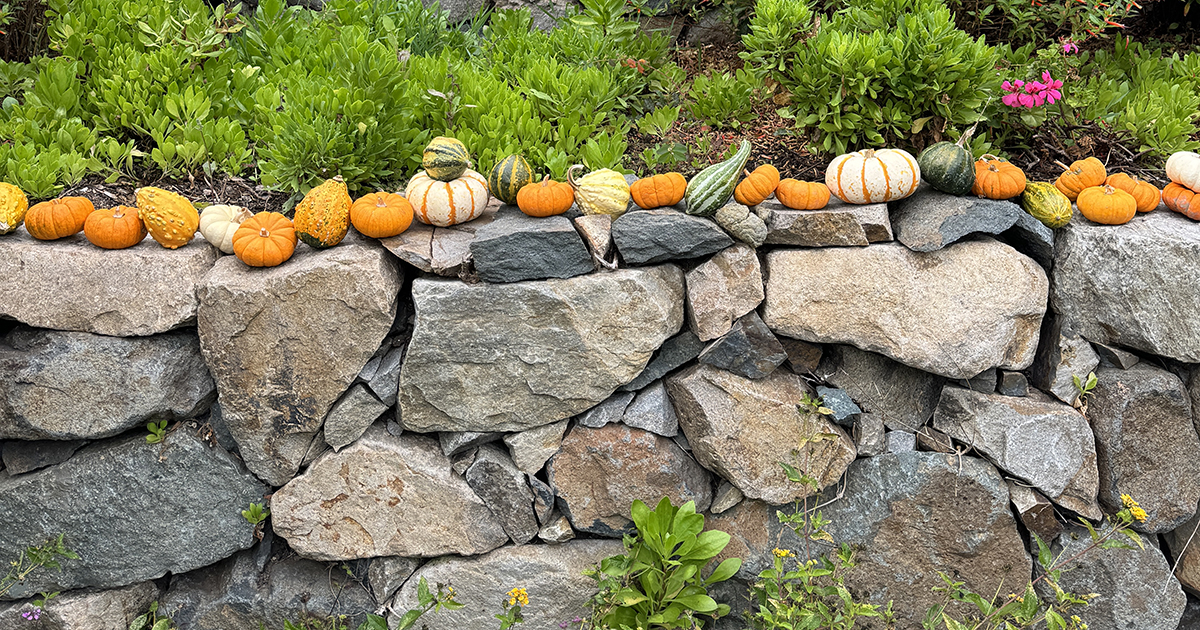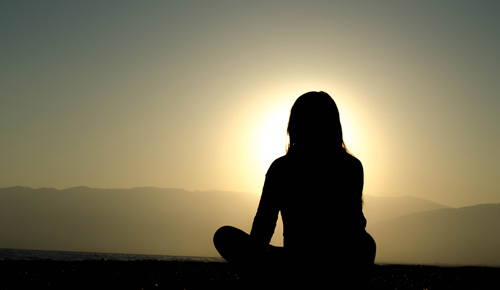
“How we spend our days is, of course, how we spend our lives.”
– Annie Dillard
Are you willing to spend a little time every day like most people won’t, so you can spend the better part of your life like most people can’t?
Think about that question for a moment. Let it sink in. You ultimately become what you repeatedly do. The acquisition of knowledge doesn’t mean you’re growing — growing happens only when what you know changes how you live on a daily basis (most people miss the second part).
And isn’t it funny how day by day nothing changes, but when you look back everything is different? That’s the power of daily rituals.
Now it’s time think about your rituals — the little things you do every day.
Because these little things define you.
All the results in your life come from these little things.
Regardless of your unique life circumstances, or how you define success, you don’t suddenly become successful. You become successful over time based on your rituals.
Failure occurs in the same way. All your little daily failures (that you don’t learn and grow from) come together and cause you to fail…
- You keep failing to check the books.
- You keep failing to make the calls.
- You keep failing to listen to your customers.
- You keep failing to innovate.
- You keep failing to do the little things that need to be done.
Then one day you wake up and your business has failed. It was all the little things you did or didn’t do on a daily basis — your rituals — not just one inexplicable, catastrophic event.
Think about how this relates to your life.
Your life is your “business!”
And your rituals make or break you, one day at a time.
Even the seemingly insignificant daily rituals you engage in can produce ripples of consequence, for better or worse.
So how have you been managing your rituals, and thus your life?
Are the little things you’re doing every day working for you or against you? If you think the answer might be the latter, you will find value in the tiny daily rituals listed below. Each of them gradually strengthens common weak points we’ve seen plaguing hundreds of our course students, coaching clients, and live event attendees over the past 15 years (these weak points are little negative patterns of behavior that almost all of us struggle with at some point).
And remember, this article is about making tiny, sustainable changes in your routine behavior. That means practicing each one of these rituals gradually — one at a time, one day at a time, and then letting them build on one another. Go from zero to six over the course of a few months, not all at once.
1. The ritual of washing your dishes.
Yes, I literally mean washing your dishes. It’s just one small step forward: When you eat your oatmeal, wash your bowl and spoon. When you finish drinking your morning coffee, rinse the coffee pot and your mug. Don’t leave any dirty dishes in the sink or on the counter for later. Wash them immediately.
Form this small ritual one dish at a time, one day at a time. Once you do this consistently for a couple weeks, you can start making sure the sink has been wiped clean too. Then the counter. Then put your clothes where they belong when you take them off. Then start doing a few sit-ups every morning. Eat a few vegetables for dinner. And so forth.
Do one of these at a time, and you’ll start to build a healthy ritual of practicing self-discipline, and finally know yourself to be capable of doing the little things that must be done, and finishing what you start.
But again, to start, just wash your dishes. Mindfully, with a smile.
2. The ritual of journaling (for fifteen minutes or less).
Oprah keeps a journal. Taylor Swift keeps a journal. Eminem keeps a journal. Successful people all over the world — those who consistently make positive changes in their lives — reflect daily and learn from their life experiences. And they often use some kind of journal to accomplish this.
If you want to get somewhere in life, you need a map, and your journal is that map. You can write down what you did today, what you tried to accomplish, where you made mistakes, and so much more. It’s a place to reflect. It’s a place to capture important thoughts. It’s a place to sort out where you’ve been and where you intend to go. And it’s one of the most underused, yet incredibly effective tools available to the masses.
Just this morning, I spent fifteen minutes journaling about some recent events in my life that I’m grateful for, and some that are still troubling me. As I was wrapping up, the idea for the blog post you’re reading now came to me, which was a pleasant surprise since I hadn’t yet decided what I was going to share with you today.
I also unearthed some incredibly healthy insights regarding an important relationship that I had been neglecting, which motivated me to immediately send out a text message to someone I care about who I’ve been meaning to reconnect with. We now have a brunch date scheduled for next Sunday.
So as you can infer, your time spent focusing inward and journaling doesn’t just help you — your mind is powerful and your thoughts create ripples in the world around you. When you bring clarity into your life, you bring the best of yourself into everything you do — you tend to treat yourself and others better, communicate more constructively, do things for the right reasons, and ultimately improve the world you’re living in. This is why journaling for a short time every day can actually make a significant real-world difference in your life. (Note: If you’re interested in starting a journaling practice, or simply expanding on your current practice, check out “The Good Morning Journal”.)
3. The ritual of simply doing only one thing at a time.
Be honest…
- Do you check social media apps on your phone when you’re sitting in meetings, or when you’re spending time with family and friends?
- Do you eat lunch at your desk, or while you’re on the run?
- Is the TV often on in your home, even when you’re busy doing other things?
- Do you send the occasional text message while driving?
The biggest cost of doing multiple things at once like this (assuming you don’t crash from the occasional texting and driving) is a gradual decline in your productivity and happiness over the long-term. When you get into the habit of persistently dividing your attention, you’re partially engaged in every activity, but rarely focused on any one. And this dizzying lack of focus eventually trips you up and brings you down.
Let’s use a quick metaphor to bring this point home:
If you hold a magnifying glass over a small pile of dry leaves as the sun shines bright on the hottest afternoon of the whole year, NOTHING will happen…
…so long as you keep moving the magnifying glass quickly from one leaf to the next.
But as soon as you hold the magnifying glass still and FOCUS the sun’s magnified rays on one single area of one single leaf, the whole pile of leaves will ignite into flames.

That’s the power of focusing on one thing at a time.
Your opportunity on a daily basis is to realize that you are the magnifying glass in your own life, and that you can intentionally focus the energy you get from the world on one single leaf at a time. When you do so, you will ignite incredible “flames” that move your projects, your dreams, your relationships, and even the world around you, forward.
4. The ritual of bringing awareness to your attachments.
Most of the things we desperately try to hold on to, as if they’re real, solid, everlasting fixtures in our lives, aren’t really there. Or if they are there in some form, they’re changing, fluid, impermanent, or simply imagined in our minds.
Life gets a lot easier to deal with when we understand this.
Imagine you’re blindfolded and treading water in the center of a large swimming pool, and you’re struggling desperately to grab the edge of the pool that you think is nearby, but in reality it’s not — it’s far away. Trying to grab that imaginary edge is stressing you out, and tiring you out, as you splash around aimlessly trying to holding on to something that isn’t there.
Now imagine you pause, take a deep breath, and realize that there’s nothing nearby to hold on to. Just water around you. You can continue to struggle with grabbing at something that doesn’t exist, or you can accept that there’s only water around you, and relax, and float.
On a daily basis, I challenge you to consciously ask yourself:
- What are you desperately trying to hold on to in your life right now?
- How is it affecting you?
Then imagine the thing you’re trying to hold on to doesn’t really exist.
Envision yourself letting go… and floating.
(Note: Angel and I guide readers through this process in the Letting Go chapter of “1,000 Little Things Happy, Successful People Do Differently”.)
5. The ritual of allowing most things to be the way they are.
Some things in life are worth changing. Most things are not.
Let that sink in for a moment. Then consider this:
“If you want to control the animals, give them a larger pasture.”
That’s a quote Angel and I heard at a meditation retreat several years ago in a group discussion focused on the power of changing your attitude about things you can’t change or don’t need to change.
I see “the animals” and their “larger pasture” as a form of letting go and allowing things to be the way they are. Instead of trying to tightly control something, you’re loosening up, giving it more space — a larger pasture. The animals will be happier; they will roam around and do what they naturally do. And your needs will be met too; you will have more space to be at peace with the way the animals are.
This same philosophy holds true for many aspects of life — stepping back and allowing certain things to happen means these things will take care of themselves, and your needs will also be met. You will have less stress (and less to do), and more time and energy to work on the things that truly matter, and the things you actually can control — like your attitude about everything.
This form of letting go is not giving up. It’s about surrendering any obsessive attachment to particular people, outcomes and situations. It means showing up every day in your life with the intention to be your best self, and to do the best you know how, without expecting life to go a certain way.
The energy of someone aspiring to create something wonderful, teamed with this kind of surrender, is far more powerful and rewarding than someone determined to create outcomes with a desperate “must-have” mentality. Surrender brings inner peace and calmness, and lest we forget that our outer lives are a reflection of our inner state of being.
6. The ritual of giving thanks before bed.
Overlooking everything that’s wonderful is a tragedy, and a very debilitating one. When you get lost in worried thoughts about a life situation you think you “should” have, you end up missing the beauty of everything you do have. And you will never be happy if you aren’t consciously thankful for the good things in your life.
Here’s a super simple, five-minute daily gratitude exercise that has worked wonders for hundreds of our students and coaching clients over the past 15 years:
Every evening before you go to bed, write down three things that went well during the day and their causes. Simply provide a short, causal explanation for each good thing.
That’s it. We spend tens of thousands of dollars on expensive electronics, big homes, fancy cars, and lavish vacations hoping for a boost of happiness. This is a free alternative, and it works.
In a study of this gratitude exercise’s effectiveness by the famed psychologist Martin Seligman, participants were asked to follow those exact instructions for just one week. After one week the participants were measurably 2% happier than before, but in follow-up tests their happiness kept on increasing, from 5% at one month, to 9% at six months. Even more interestingly, the participants were only required to keep this gratitude journal for one week, but the majority of them continued journaling on their own because they enjoyed it.
I tried it for myself nearly two decades ago — I set a goal of doing it for just one week, and I’m still doing it today. So I can assure you it’s effective.
The power of renewing trust in yourself.
Renewing trust in yourself is one of the most significant hidden benefits of practicing the aforementioned daily rituals. In fact, what Angel and I lacked before we learned to implement these kinds of daily rituals was the trust that we were actually capable of achieving positive results in our lives. We went through a very difficult time together when we were in our twenties — both of us were grieving significant losses in our lives, and we repeatedly failed to get back on our feet. As the weeks rolled into months, we had grown so discouraged in ourselves that we started subconsciously choosing procrastination over future attempts to make progress on the promises we made to ourselves — to heal and move forward.
In essence, we lost trust in both our abilities and ourselves. It’s kind of like another person constantly lying to you — eventually you stop trusting them. The same holds true with the promises you make to yourself that always end in disappointment. Eventually you stop trusting yourself.
And the solution in most cases is the same too: you have to renew your trust gradually, with tiny promises, tiny steps (your daily rituals), and tiny victories. Of course this process takes time, but it happens relatively fast if you stick to it. And it’s arguably one of the most important, life-changing things you can do for yourself.
Now it’s your turn…
Yes, it’s your turn to take the first step with one (and only one) of the aforementioned daily rituals. But before you go, please leave Angel and me a comment below and let us know what you think of this essay and its ideas. Your feedback is important to us. 🙂
Finally, if you haven’t done so already, be sure to sign-up for our free newsletter to receive new articles like this in your inbox each week.







wnskmn
lnstpy
jdc6et